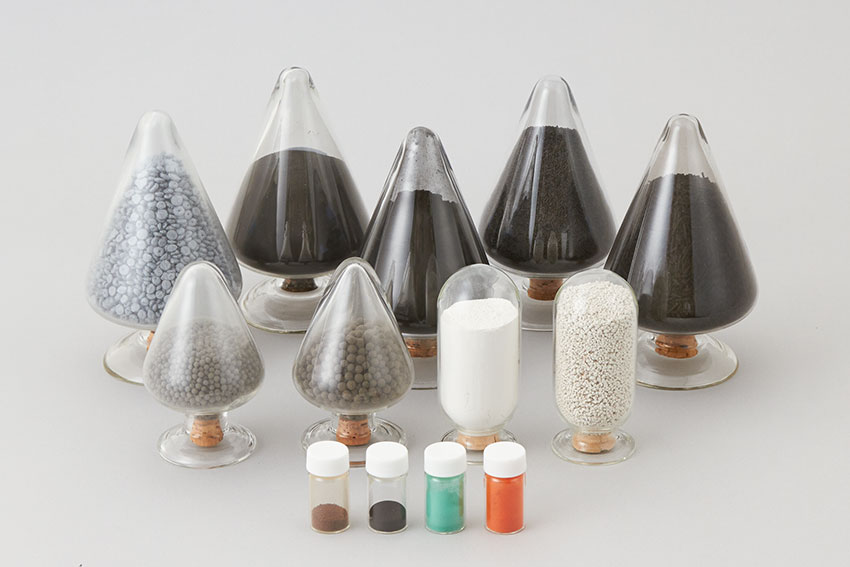

A company whose catalysts contribute to a variety of industries, N.E. CHEMCAT has SDGs in its sights as part of its Vision 2030.

“Our target is to enter new fields of opportunity, and sustain a circular economy and society.”
Matsuru Kushida, President & Representative Director, N.E. CHEMCAT CORPORATION
A part of BASF Group, the world’s largest chemical producer, N.E. CHEMCAT CORPORATION is a major Japanese manufacturer of precious metal catalysts for a range of applications. A company whose corporate slogan is ‘excite the imagination’, it supplies an extensive portfolio of clients in both the domestic and international market.
Founded in 1964 in a joint venture between Sumitomo Metal Mining and BASF Corporation (then known as Engelhard Corporation), N.E. CHEMCAT has three chief product areas: auto exhaust catalysts that neutralize harmful emissions from combustion engines; chemical catalysts used to manufacture industrial goods such as chemical fibers, plastic bottles and medical products; and fuel cell catalysts that produce electricity from hydrogen and oxygen.
Headquartered in Tokyo, N.E. CHEMCAT has production and R&D locations in Numazu City and Bando City, and works closely with its fellow group members.
As Japan, along with many other countries, targets carbon neutrality by 2050, N.E. CHEMCAT has in recent years stepped up its focus on catalysts for new energy value chain applications using alternative energy sources such as hydrogen and ammonia. The company has started to develop catalysts to reduce carbon emission in energy production, storage, delivery, usage and recycling.
Especially when it comes to the usage of hydrogen, catalysts for fuel cell electric vehicles (FCVs) are emerging as a growing alternative to combustion engine vehicles. “Fuel cell catalysts represent a new business area which we have been putting most emphasis on,” says the company’s president and representative director, Matsuru Kushida.
“There is a surge in EVs (battery electric vehicles) and FCVs to work towards zero emissions. Contributing to this trend of electrification, our fuel cell electrode catalyst has great potential for growth, being a vital component of the FCV.”
N.E. CHEMCAT’s fuel cell business is key to Vision 2030, a company action plan that targets the Sustainable Development Goals (SDGs) developed by the United Nations.
“We see new opportunities in fields related to SDG applications that are focused on lowering carbon emissions and climate temperature,” Mr. Kushida says. Fuel cells are also integral to N.E. CHEMCAT’s global expansion plans – “we would like to approach global OEMs and suppliers to provide catalysts for FCV buses and trucks,” Mr. Kushida notes – while the use of hydrogen power in areas other than the automobile sector is a target for the company, too.
In addition to reducing emissions, N.E. CHEMCAT’s fuel cell technology has a role to play in creating a circular economy – a goal that is another major element of Vision 2030. For example, the firm is committed to recovering and recycling the precious metals used in the catalysts it creates both for hydrogen power generation and other applications. “We also call ourselves a refining company,” Mr. Kushida explains. “We recover precious metals from spent products, utilizing our extensive history and experience in base and precious metals. We want to provide a comprehensive FCV service that includes the collection of precious metals.”
N.E. CHEMCAT also aims to work towards achieving the SDG relating to food security, by making fruit and vegetables last longer. “When they are transported, they produce gasses that hasten their aging process,” Mr. Kushida says. “To reduce the gasses produced by food, we can combine a catalyst with the active gas to slow down the rotting process and be more efficient in transporting it. This is something we can pursue.”
0 COMMENTS